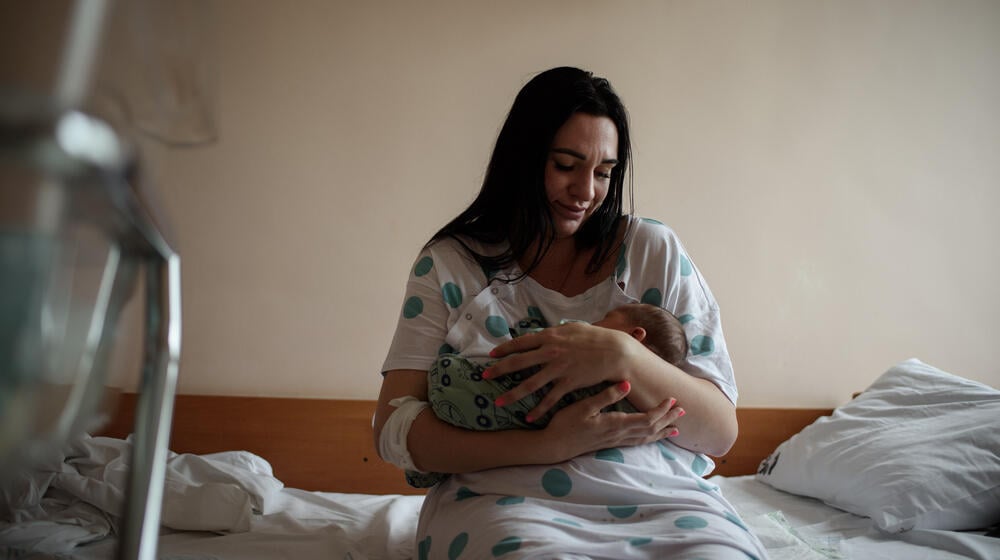More than 24,000 children are born in Moldova every year. About 18,000 of them are born in 12 perinatal centres of the first, second and third levels, recently modernised by the Ministry of Health with the support of The United Nations Population Fund. These maternity centres are now equipped with the most modern medical equipment, furniture, kits and consumables. Maternity and obstetric wards, neonatal and maternal intensive care units, women's post-operative recovery wards and blood transfusion units have been fully upgraded in these centres.
The war in Ukraine has led to the biggest refugee crisis on the European continent in decades, and Moldova, as Ukraine's closest neighbour, has been at the epicentre of this crisis. The medical system has also taken on a large wave of refugees, and thanks to UNFPA's support for perinatal medicine, has held up under the strain. Ukrainian newborns are among the 18,000 babies born in the renovated centres.
Yulia met the war in her native Kherson, and almost immediately, together with her family, fell under Russian occupation. It was a very difficult ordeal for their family - during the occupation, Yulia required a complex operation, which was very dangerous to perform in war conditions. Having coped with it, they decided to leave the temporarily occupied territories for Spain, and a year later, Yulia and her family came to Moldova and now lives in Chisinau.
After half a year in Moldova, she felt something wrong unsual and went to the doctor. A detailed examination revealed a preganancy - Iulia was expecting a child. There was no limit to happiness - for Yulia this news was long-awaited, and since then her life was divided into before and after.
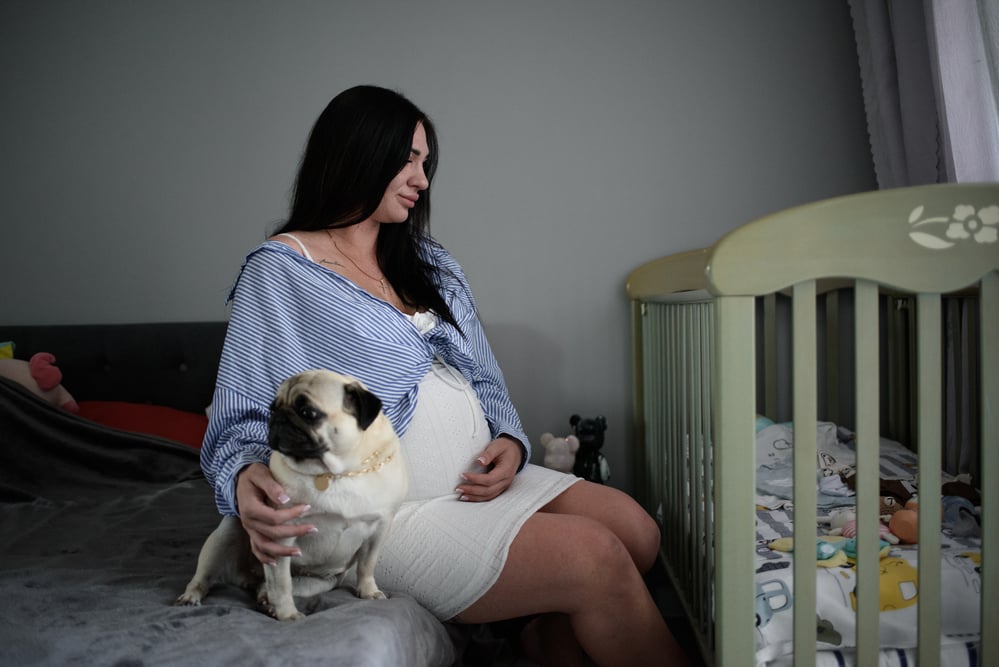
She was expected to give birth in early June. According to medical indications, she was supposed to have a natural birth. After the first contractions, an ambulance took Iulia and her mum to the Gheorghe Paladi Municipal Clinical Hospital No. 1 in Chisinau, where she was under the care of doctors 24/7.
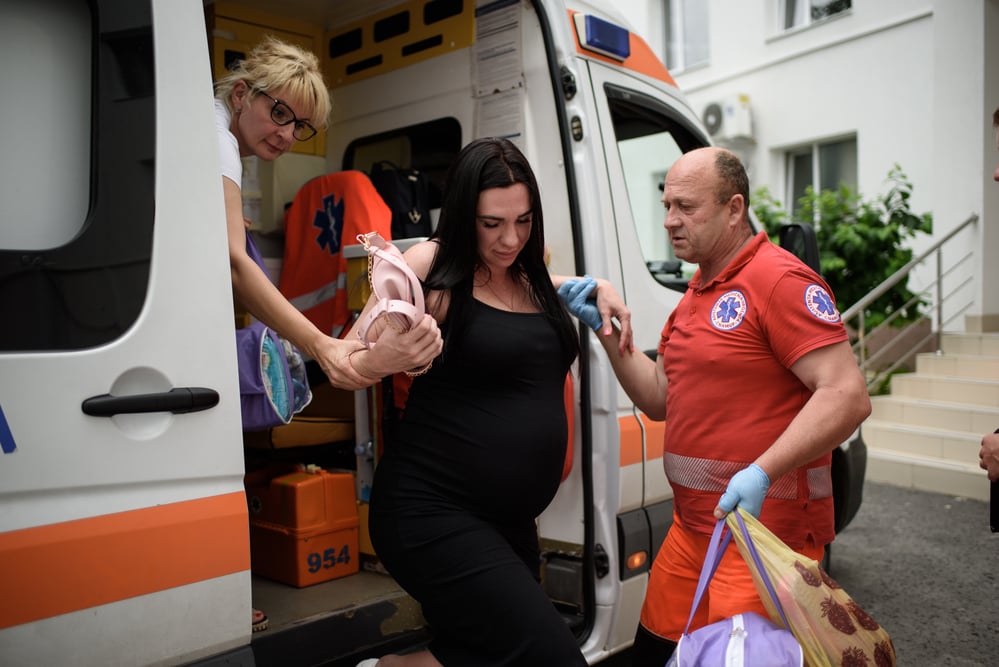
It was a spacious and clean air-conditioned single-person ward with everything necessary for labour. However, there were no more contractions for some time, so her doctor decided on a caesarean section. The operation was supervised by Oleg Potachevsky - Yulia's doctor and head of the maternity department of Hospital No. 1. The whole medical staff worked harmoniously as a single mechanism.
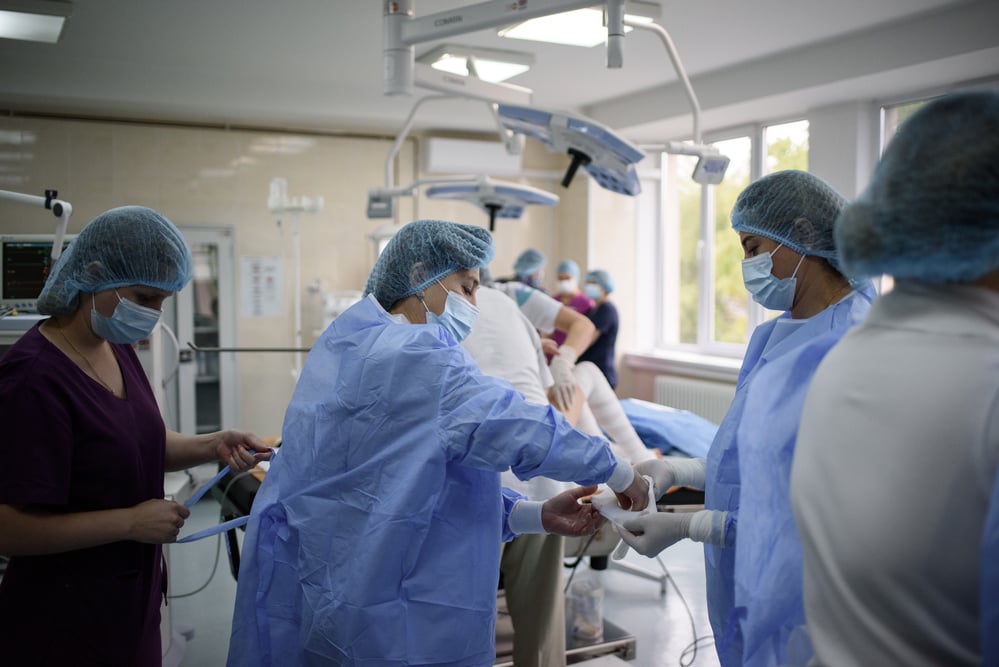
There was silence in the operating theatre, you could hear only quiet commands to each other between doctors. While the staff was preparing for the operation, Julia was sitting on the operating table, her hand was held by Ala Kalancha, the head midwife who had been guiding Julia all these days. In this not easy moment, Ala tried to calm Julia down, and it worked. Ala has been in the profession for over 30 years.
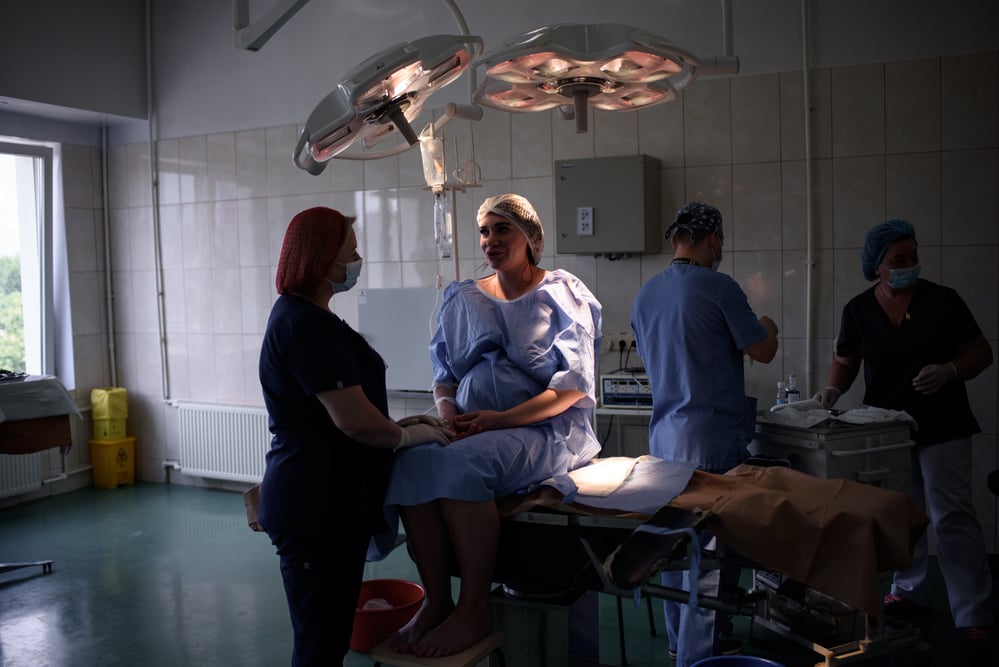
It was less than an hour after the surgery began when a small, wrinkled face with closed eyes appeared under the light of the operating theatre lamps. He was quickly picked up by nurses, taken to another room and started wiping, and a minute later he - a boy who had just been born - made his first sound.
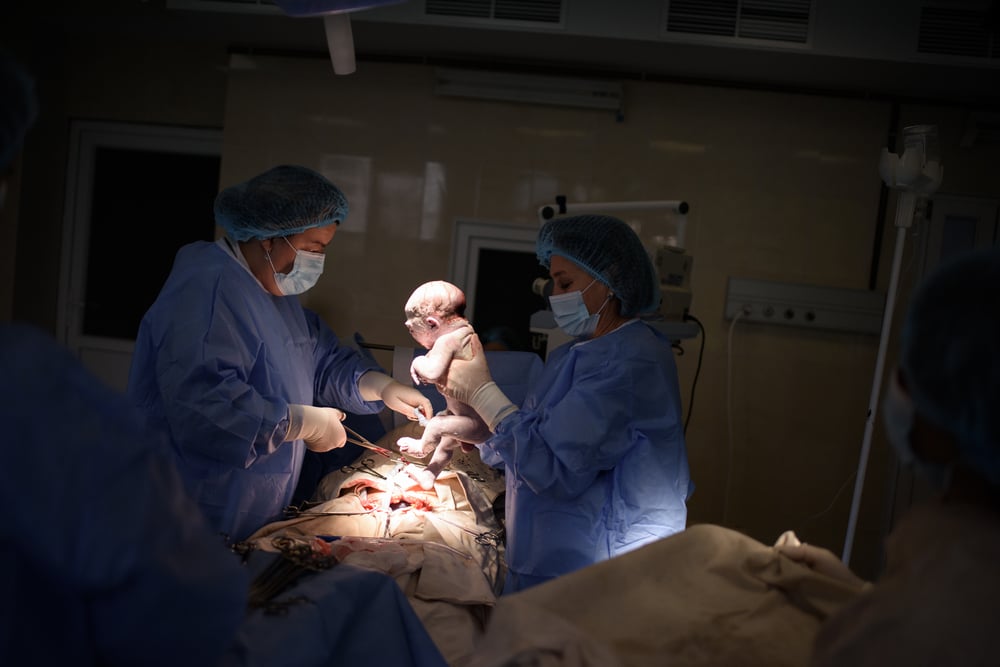
According to the protocol, after that the baby is brought to his mum and shown - for Yulia this is the most important moment in her life - she saw Misha for the first time, that's how she named her son.
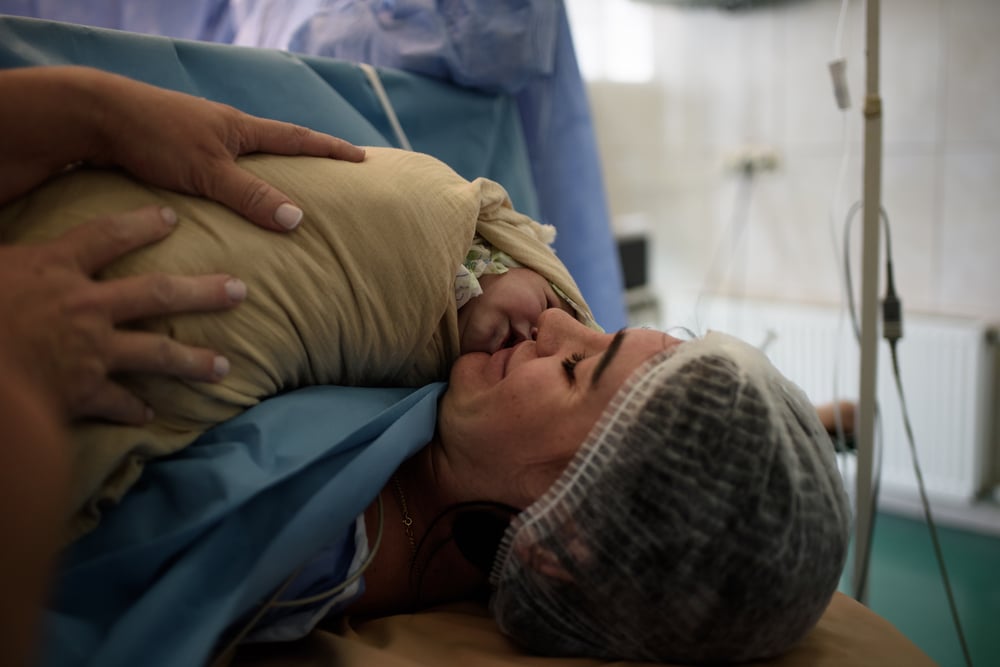
After the operation, the child was taken to the room where his grandmother was waiting for him. There he was weighed and measured, and in the meantime Yulia was stitched up and then transferred to the intensive care unit.
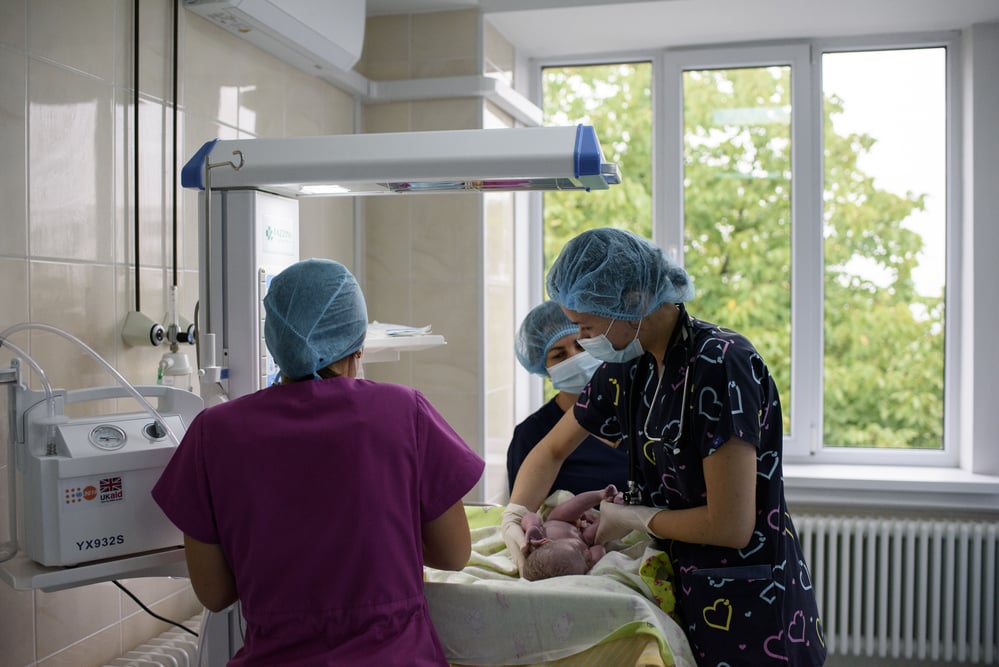
But Ukrainian refugees not only give birth in Moldova, but also deliver babies themselves. Thus, Natalia Meleca, a Ukrainian refugee from Mykolayiv, who works in Orhei hospital as an operating nurse, found herself on the other side of the scalpel.
Natalia's husband is Moldovan, and when the war broke out, they came to his small homeland - Orhei. They arrived in April 2022, and almost immediately she got a job at Orhei Hospital in the position she had held for the last 27 years in Ukraine - an operating room nurse in perinatal surgery.
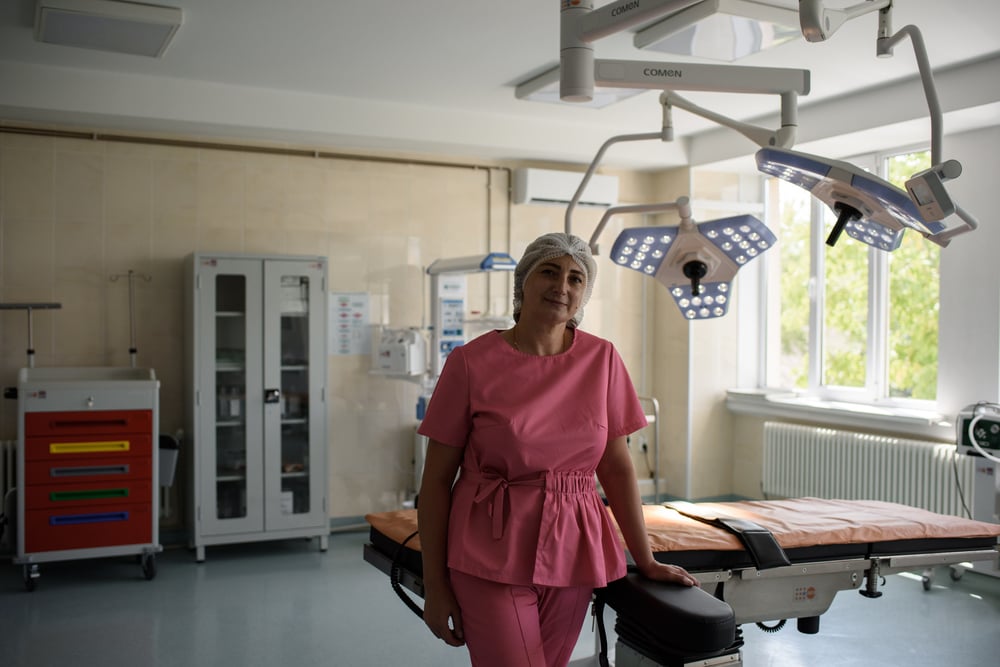
At the beginning there were difficulties - Natalia does not speak Romanian, but the friendly staff understood the situation and helped as much as they could - they taught her terms in Romanian, sometimes communication was done in sign language, but now the situation is much better, she is accepted as a native.
Natalia's duties as an operating theatre nurse are broad. These include: preparing the operating theatre for surgery; making sure that the participants in the surgery are prepared in the same way; preparing instruments, dressings and suture material; making sure that the patient is brought to the surgery on time; feeding the instruments during the surgery and checking the quantity of instruments and dressings. And also to see that all the participants follow the sanitary-hygienic regime. And after the operation - disinfecting everything and sorting out the rubbish.
Surgery is a complex process, so it is very important that the people who directly perform the operation feel comfortable. Therefore, the new equipment is not only beautiful, but also functional and comfortable. The life and health of the expectant mother and child depend on how comfortable it is for doctors to work.
Previously, operating lamps were old, the light was scattered and not directed to the right area. Now a precise light source is used. The operating table is adjustable in any position and is battery operated. On the neonatal table, everything is connected - oxygen source and heating. They used to be separate but now everything is connected and it is very convenient.
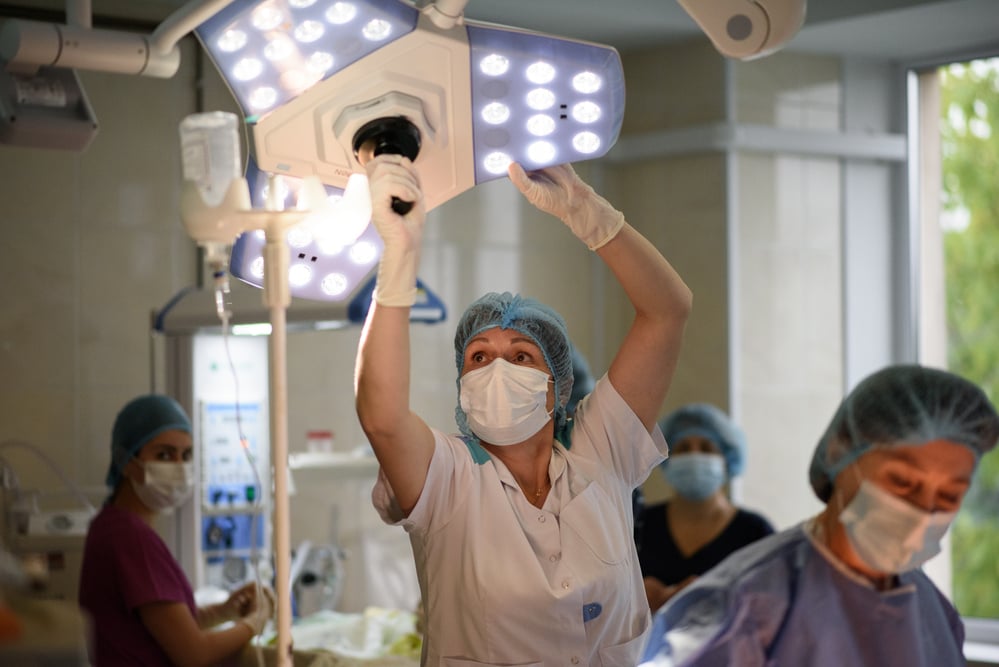
This time there are two Ukrainians in the operating theatre - Natalia, an operating nurse, and Victoria, a young woman from Ukraine who is about to give birth to a baby. Between them they exchange phrases in Ukrainian, and you can see how important it is for them to feel at home far away from home. Victoria is going to have a boy.
When a child is born, it is a real happiness for me, especially when you hold him in your arms and he takes you by the hand. I am happy for women, it is a great happiness to bring a child into the world.
Natalia Meleka.
UNFPA expresses its gratitude to all partners for their support: European Union, Sweden, Switzerland, United Kingdom, USA, Australia, Denmark, Iceland, Ireland, Netherlands, Norway, Japan, and South Korea.
Together, we save lives and help women give birth safely, even during times of crisis.

